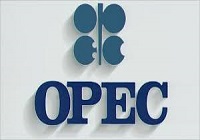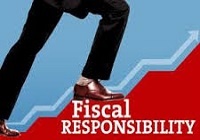The Organization of the Petroleum Exporting Countries (OPEC) in an international organization which has its headquarters positioned in Vienna, Austria. OPEC’s mandate is to “coordinate and unify the petroleum policies” of its members and to “ensure the stabilization of oil markets in order to secure an efficient, economic and regular supply of petroleum to consumers, a steady income to producers, and a fair return on capital for those investing in the petroleum industry.” The history of OPEC is an interesting one and one that calls for attention to be known about.
It was during 1960s, the era of the extensive decolonization when the international oil markets were tightly controlled by the private multinational companies also known as the “Seven Sisters “when five oil producing countries namely Iran, Iraq, Kuwait, Saudi Arabia and Venezuela met at Baghdad in the September of year 1960 and adopted a collective vision. Its first headquarters was in Geneva and was later shifted to Vienna, which is still it’s headquarters. They adopted ‘Declaratory Statement of Petroleum Policy in Member Countries and so they aimed in exercising full control over their nation’s natural resources in the name of national development. The number of member nations increased to 10 till the end of 1960s.
OPEC gained worldwide attention in the 1970s as their constituent nations were able to control their individual petroleum industries and hence became the key players in deciding the crude oil prices around the world. During the 70s decade on two occasion did the oil prices rose steeply the first was when the Arab nations stopped the oil exports to the Iranian allies and thus ordering a trade embargo to countries like USA which led to very oil crisis in the world and the second was when the Iranian revolution which led to Ayatollah Khomeini come to power by replacing Mohammad Reza Shah Pahlavi, in 1979. During this period only OPEC announced a key decision to form OPEC Fund for International Development, which aimed for socio-economic development schemes in the poorest nation of the world. The number of member nations increased to 13 by 1975.
During the 1980s the price levels of crude oil that had sky-rocketed, started falling steeply till they finally crashed in 1986. During the great crash, the member nations of OPEC suffered heavily as their petroleum revenue dropped below to one third of their peak. Finally in the late 1970s the prices stabilized and started rising and it was all due to OPECs new schemes which fixed a certain ceiling among Member countries and a Basket Reference for pricing was undertook. Amidst the quest for stabilizing the market prices, environmental issues were raised as a cause of concern in the international dialogue.
During the 1990s there was huge volatility in the prices of oil there was overall weakness in the general price of crude oil and owing to economic slowdown in the South-East Asian nations which drove the price of crude oil back to the levels as it was in 1986 levels. However the prices reached a solid recovery adjusting to the post-Soviet periods. After the Earth Summit of 1992, the climate change advocates protested against the OPEC to which OPEC demanded fairness. During this time one member nation departed OPEC whilst the other nations suspended their memberships.
During the 2000s OPEC initially functioned very well using the unique oil price band mechanism that helped them control the crude prices effectively. The biggest reason for destabilizing the oil prices became, Speculation, as the Oil was used seen as an asset. The oil prices took a record high and reached a ground breaking levels in mid-2008, after that they again fell sharply as the global recession took place. During the 2000s one country departed from OPEC, while one activated it and finally one nation suspended it.
The increasing social indifferences around the world led to fluctuation of supply and demand during the first half of 2010. Prices were somewhat stable and constant in years between 2011 to the mid 2014 after which the prices again destabilized due to speculation and so it took a dive in 2014. In the current scenario the prices have made record levels of low and continue to be among the red section of the stock markets due to various reasons.
Click here for government certification in Accounting, Banking & Finance





4 Comments. Leave new
This Cartel was the reason for the price rise previously.
Informative. Good work!
nicely written…
I like the choice of your article. 🙂